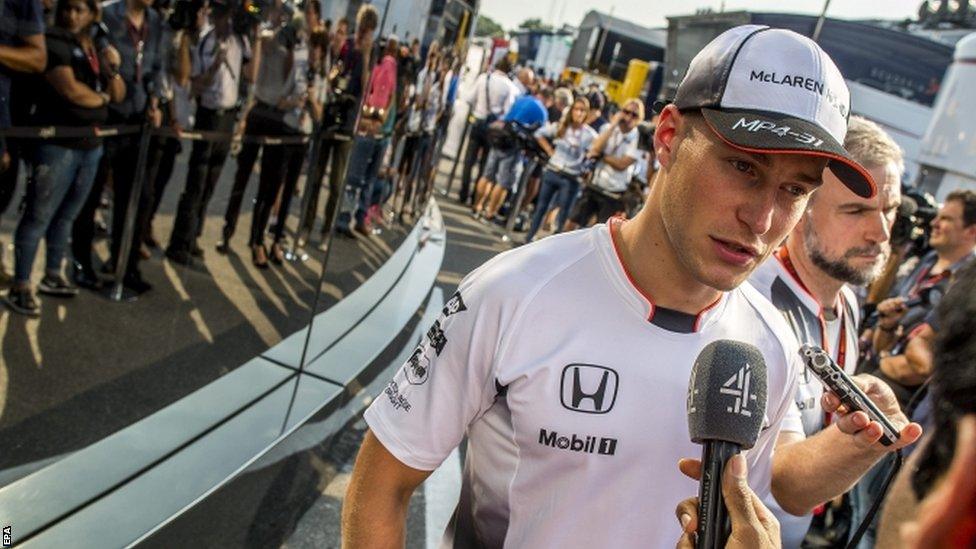Italian GP: Rosberg and Hamilton dominate but are new owners set to buy F1?
- Published
- comments
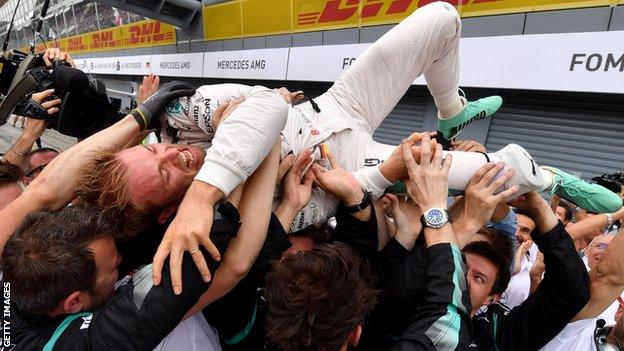
Nico Rosberg is only two points off Lewis Hamilton at the top of the standings after winning in Italy
As a television spectacle, the Italian Grand Prix looked much like any other Formula 1 race in 2016.
Mercedes dominated and the rest were left to pick up the pieces as the title battle between Lewis Hamilton and Nico Rosberg took another shift.
But, behind the scenes, it is starting to appear as though the sport will soon look very different.
A generational shift is taking place before our eyes among the drivers, with the retirement of Felipe Massa and the year out announced by Jenson Button, which could well also turn out to be goodbye.
And it seems F1 itself may soon have a new owner, with US company Liberty Media in the final stages of a buyout that would see it take over from majority shareholder CVC Capital Partners.
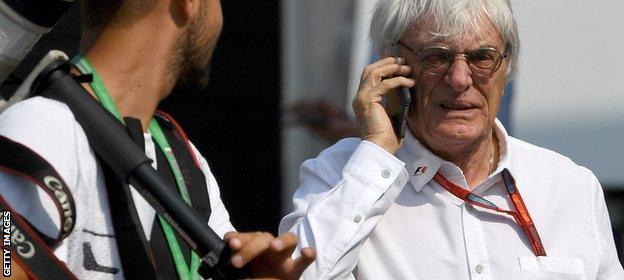
Think of F1 and you think of this man - Bernie Ecclestone has spearheaded the sport for four decades
That in itself could lead to a change of seismic proportions, with the eventual departure as F1 commercial supremo of Bernie Ecclestone, who has led the sport with a vice-like grip for 40 years.
Will the takeover happen?
Inevitably, although a deal is said to be close, there is a degree of scepticism within F1.
Over the past few years, there have been innumerable claims about modifications to its business structure.
At one stage, F1 was going to be floated on the Singapore stock market. Then it was not. Any number of potential new owners have supposedly been waiting in the wings, only for nothing to happen.
As ever, Ecclestone did little to clear the muddy waters.
Having said all of that, informed sources believe the Liberty Media takeover is real. Some say it could happen as early as this week.
Although it is inevitably a time of uncertainty, the news was greeted with cautious optimism in the F1 paddock.
CVC is not the most popular of owners, the general perception being it has taken a lot of money out of the sport and given very little back.
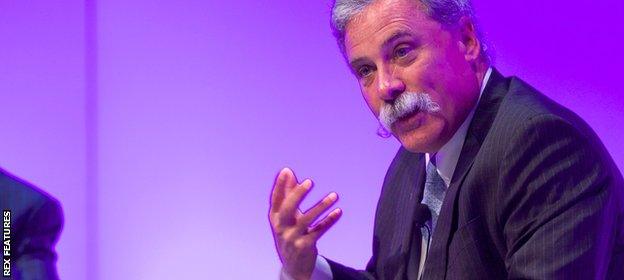
Should Liberty Media take over it is likely the sport could be chaired by this man - Chase Carey, who has worked closely with Rupert Murdoch for many years
The apparent pursuit of profit above all else that has characterised the running of the sport in the past decade or so has led to decisions with which many are uncomfortable.
They include the decision to pursue of new races in countries with questionable regimes that have a lot of money to spend on trying to clean their global public image.
And the choice of a tyre supplier based largely on how much money it is willing to spend rather than the regard for which its product is held by teams and drivers.
Of course, the new owners are not buying F1 out of philanthropy and are only in a position to do so because they have made an awful lot of money.
But the assumption is a media group might at least give some more consideration to the quality of the spectacle provided by the sport.
A change of generation
Whatever happens with the takeover, on the track things will definitely be changing in 2017 with the departures of Massa and Button at the end of the year - even if one of them does turn out to be temporary after all.
Up close and personal with Massa
Already Max Verstappen is turning heads at Red Bull, becoming the youngest winner in F1 history upon his promotion from the Toro Rosso junior team in Spain in May.
Button is being replaced by the highly promising Belgian Stoffel Vandoorne - a decision McLaren were almost certain to take even if they had not been able to come to a clever compromise deal with the 2009 world champion.
And next year the double world champion Fernando Alonso has a big decision to make about whether to continue his career.
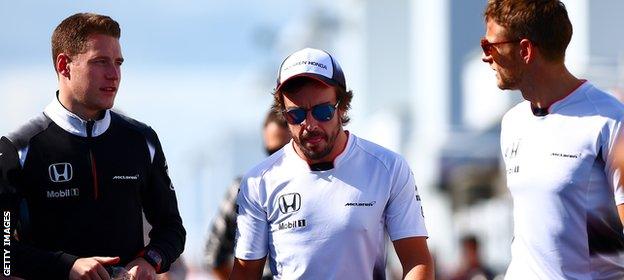
The three amigos - left (Vandoorne) will replace right (Button) while centre (Alonso) has a big decision to make
Massa looks set to be replaced by the Canadian Lance Stroll, son of the hugely wealthy businessman Lawrence Stroll, who built the fashion brand Tommy Hilfiger among other huge companies.
And 19-year-old Frenchman Esteban Ocon, who made his grand prix debut with Manor in Belgium just over a week ago, is likely to be given one of the two seats at the factory Renault team next year.
The feeling in F1 is that Vandoorne and Ocon have bright futures - and why not?
Vandoorne has had an impressive career in the junior categories and out-qualified Button on his one-off debut in Bahrain earlier this year.
Ocon beat Verstappen to the European Formula Three title in 2014 and there is undoubtedly a bit of needle between the two.
These are interesting times indeed.
Button still has it
Button is going into what could well be the final seven races of his career. But while he told McLaren he did not want to race next year because he feels he needs a break, he is clearly driving as well as ever.
BBC F1 team on Jenson Button's decision to skip 2017
His Italian Grand Prix was a highly accomplished performance in which he flat beat Alonso despite being out-qualified.
Button dropped to last on the first lap while Alonso rose from 12th to ninth. But 43 laps later, Button overtook the Spaniard on the pit straight, having made his soft tyres last five laps longer in the second stint,
That enabled him to switch on to the super-softs for his final stint, while Alonso was on the softs, which gave the Englishman a significant advantage.
The deal McLaren has come to with Button is an inspired piece of thinking by chairman Ron Dennis.
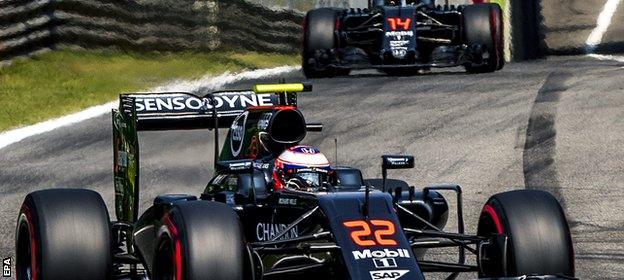
Jenson Button already has more points finishes this season than last but, despite McLaren's improvements, the Brit will still step out of the sport next year
Button was wary about fully committing to retirement, not being completely sure it was what he wanted but knowing he did not want to race next year.
This allows him to step back from the sport while still keeping a foot in the door should he change his mind, even if there is no guarantee of anything if he does.
It keeps Button on the McLaren books, which the team's sponsors are thrilled about because he is a marketing dream.
Button through the years |
|---|
Made his F1 debut in the 2000 Australian Grand Prix |
The 2006 Hungarian Grand Prix saw Button gain his first win |
Runner-up to Sebastian Vettel in the 2011 world championship |
Announces he will take a year out from the sport in 2017 |
It also gives the team a safety net in the unlikely scenario that Vandoorne disappoints.
Having Button working in the simulator and coming to some races to help the team gives them a reserve driver who is so over-qualified it makes a bit of a mockery of the title.
And it gives Dennis more leverage in negotiations with Alonso next year if he decides he wants to stay on.
If, for example, Alonso demands another $40m (£30m) salary, Dennis can say, "Do you know what, Fernando? How about you take $20m instead? Otherwise, we can always have Jenson back."
Title back to square one
Next year, McLaren have hopes of winning races. For now, only Mercedes can realistically expect that every weekend.
And after 14 grands prix, Hamilton and Rosberg find themselves going into the championship countdown only two points apart.
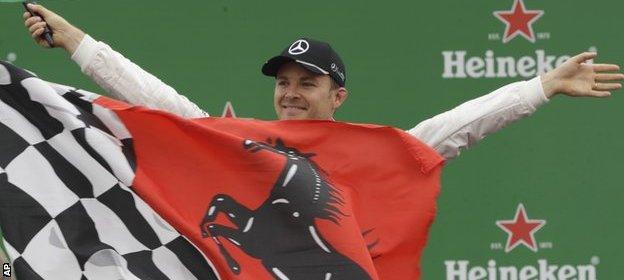
It's back on. Nico Rosberg's back-to-back victories in Belgium and Italy have blown the title race wide open
After losing what had seemed a certain victory because of a bad start, Hamilton is concerned about what he sees as the variability of the performance of Mercedes' clutch and is going to be poring over the data with his engineers at the factory on Tuesday in an attempt to improve things.
Had he been able to unleash in the race the speed he had in qualifying, Hamilton might have won anyway, but the characteristics of the Pirelli tyres used in F1 make that impossible.
He reduced Rosberg's advantage from 15 seconds to nine, but the tyres cannot be pushed beyond a certain limit and there was literally not enough rubber on them to keep going at that pace. Gone are the days when drivers can drive flat-out in races in pursuit of the seemingly impossible.
"I could have kept going at the pace I was going," Hamilton said. "Maybe I would have brought the gap down to six. Maybe. Still not enough to win the race.
"To close a 15-second gap, you are going to have to go 0.3-0.4secs quicker per lap probably over that span of time and you are not going have the tyres left at the end of it.
"If I was eight seconds behind in the beginning, I would have closed the gap and put some pressure on and maybe been in a better position, but 15 seconds is a long way to come back.
"Nico drove a great race. He was faultless. Falling back to fifth, I lose so much of my tyres coming back through the field."
Fragile tyres, questionable Mercedes starts, this is business as usual.
Rosberg had bad starts in Hungary and Germany, the two races at the end of July before the summer break.
A chink in Rosberg's media defences
In one small aspect, though, there was something different about Monza.
All season, Rosberg has stuck rigidly to the same mantra in news conferences: I'm not thinking about the title, I'm just taking it race by race.
After the race on Sunday, though, he allowed the mask to slip just a little.
It was pointed out to him that the season had seen huge swings - a 43-point lead for Rosberg after four races; a 19-point lead for Hamilton after six wins in the next seven, now cut to two points after two consecutive wins by Rosberg.
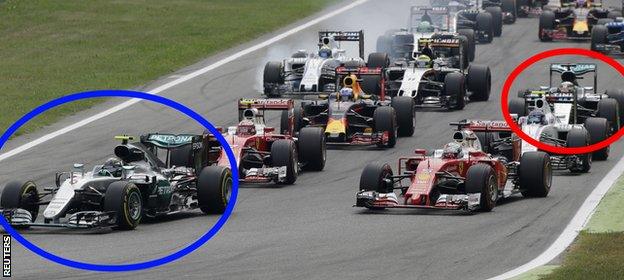
Nico Rosberg (blue circle) has been assisted in some of his wins by poor starts from Lewis Hamilton. Hamilton (red circle) was on pole for Italy, but by the first corner had slipped to sixth
Had Rosberg's belief in his ability or otherwise to win the title ever changed through all that, I asked him?
"No," he said, "because as I say I am not thinking about it. My belief to win individual races is as high as ever and I showed it today again and that's it, because its my best approach.
"Because if I think about 43 points going to 19, I would lose sleep over that. So I just don't think about it and enjoy winning the races."
Monza was Rosberg's seventh victory of the year, which is one more than Hamilton and already makes it the German's most successful ever season.
Three of those wins have come as a direct result of poor starts by his team-mate.
Hamilton remains favourite for the title, not least because he has access to a pace beyond Rosberg's reach, as he proved again in qualifying in Monza.
But those sorts of statistics are at least enough to give the Englishman pause for thought.
- Attribution
- Published5 September 2016
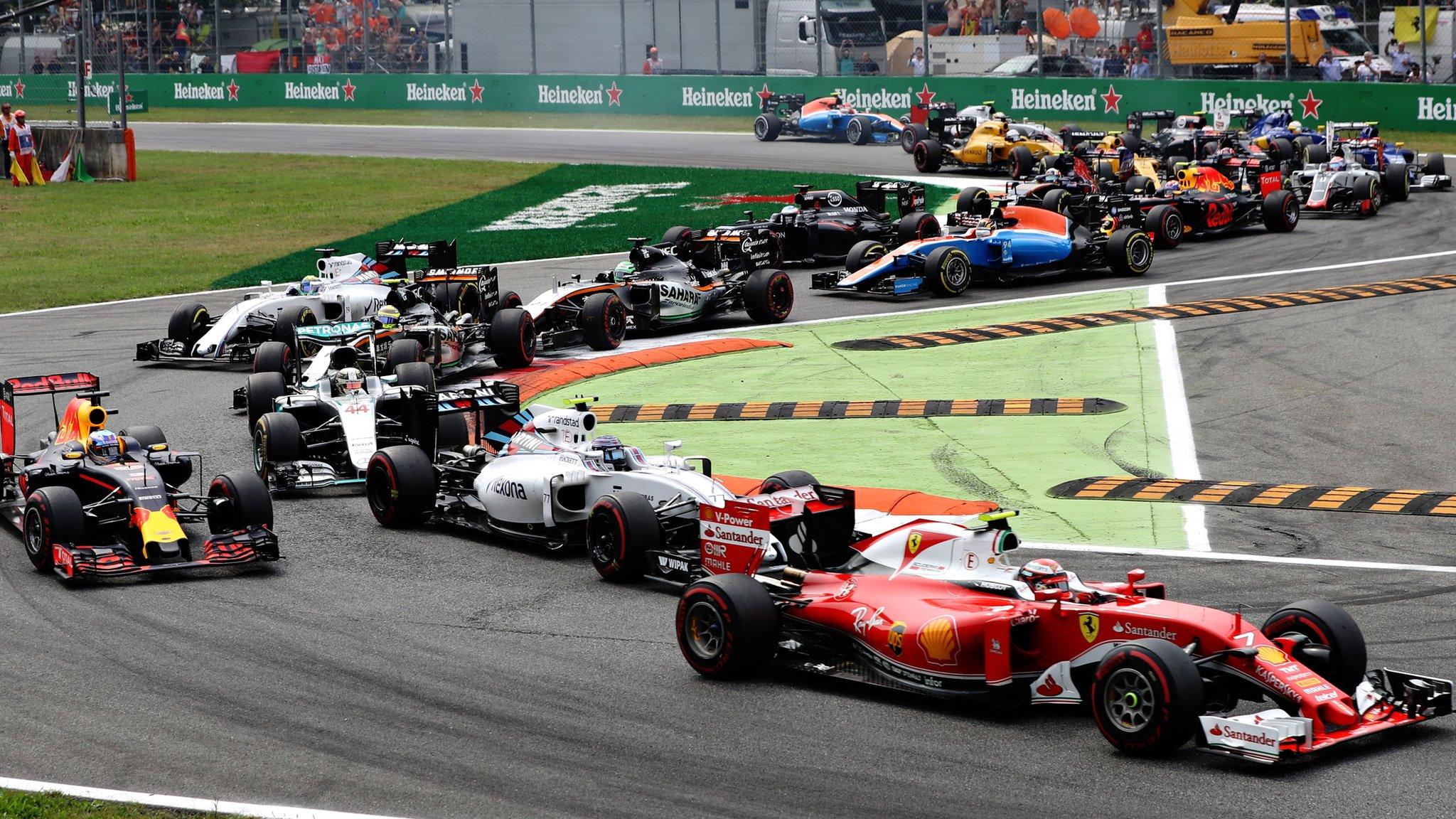
- Published4 September 2016
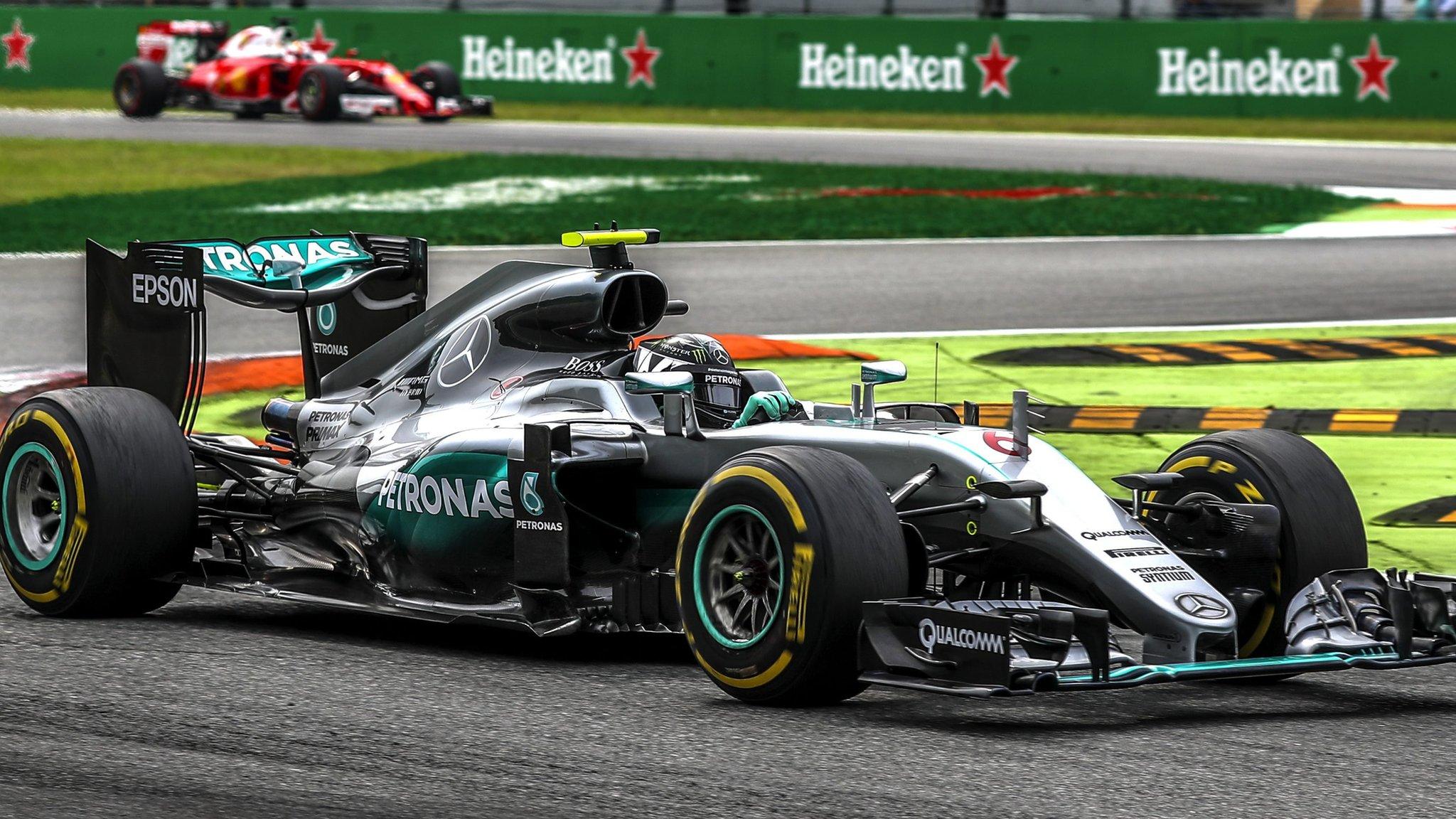
- Published4 September 2016
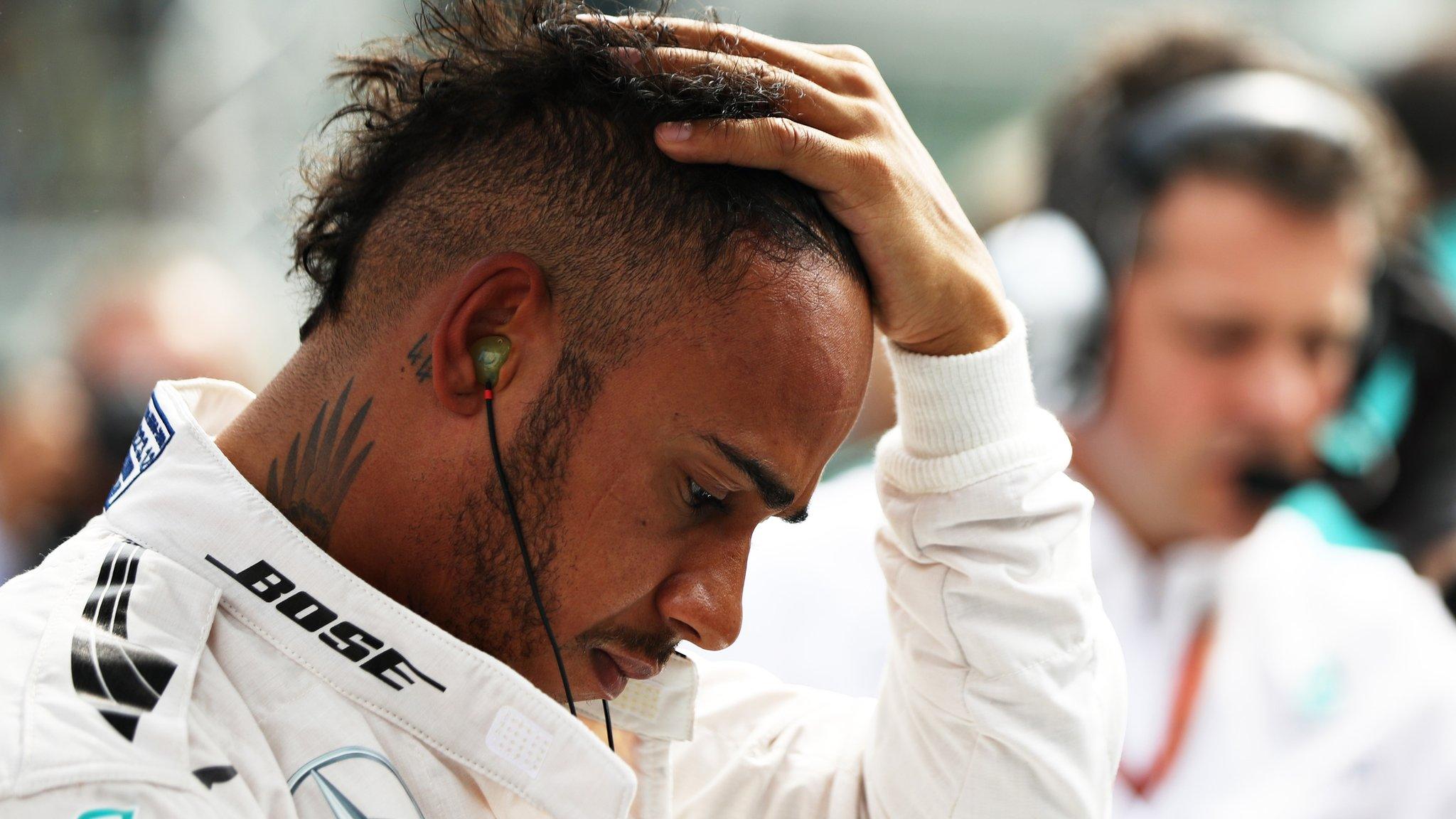
- Published3 September 2016
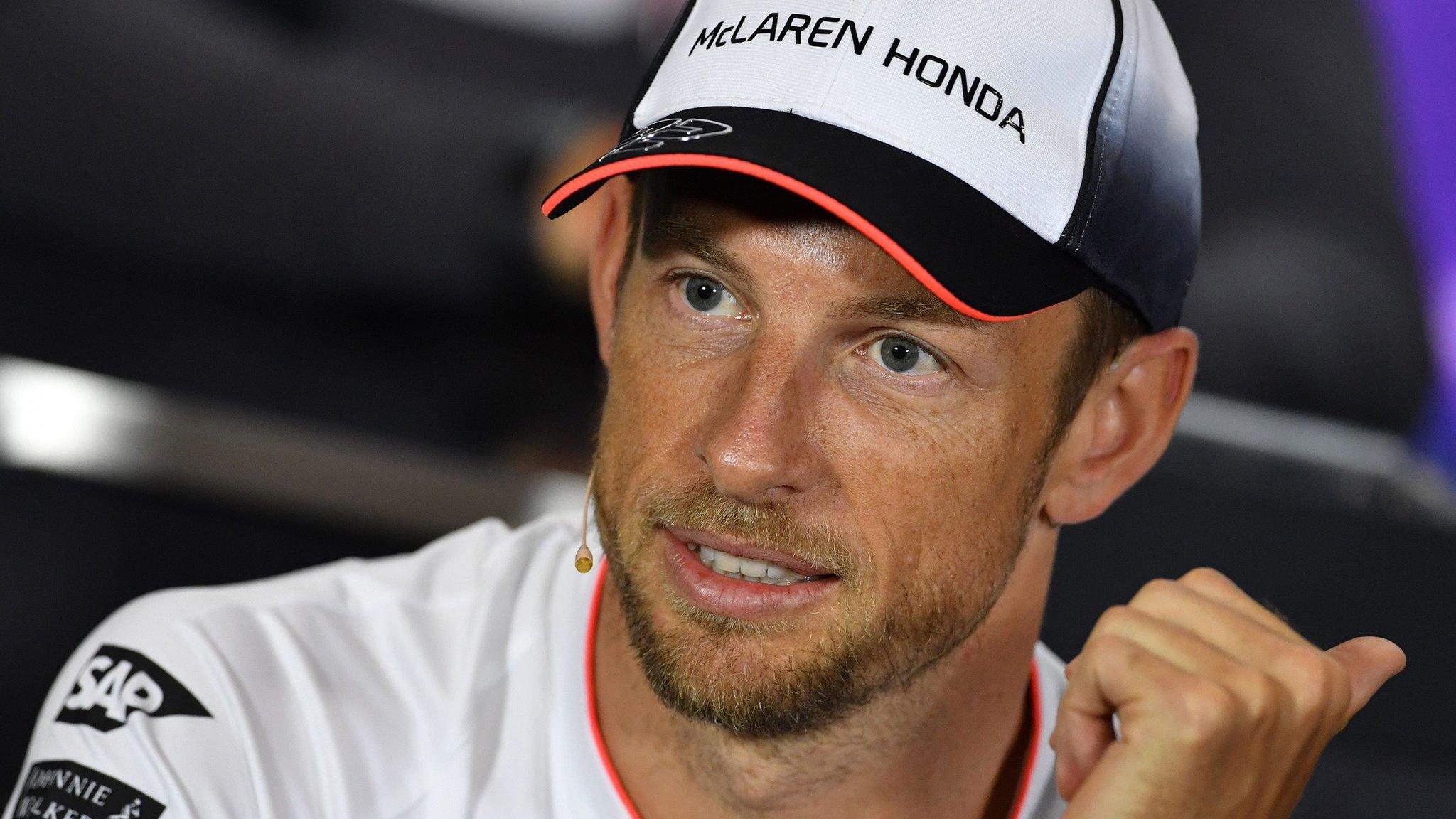
- Published1 September 2016
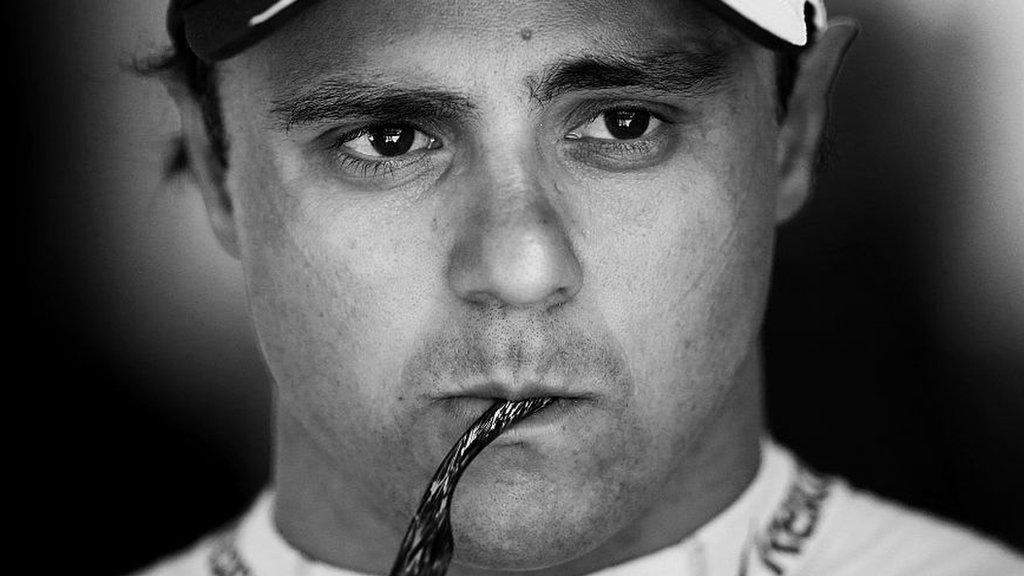
- Published24 November 2016
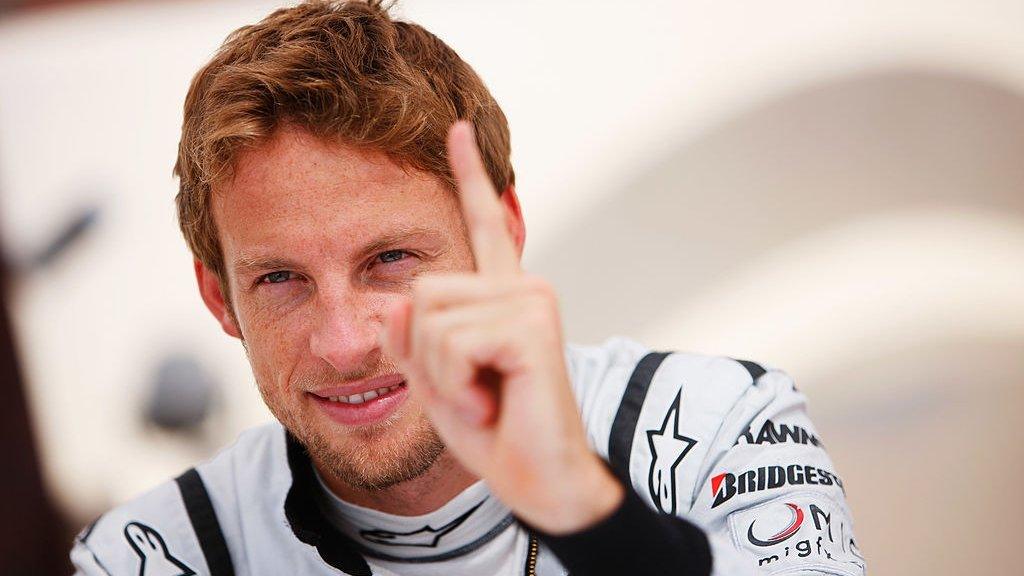
- Published2 September 2016
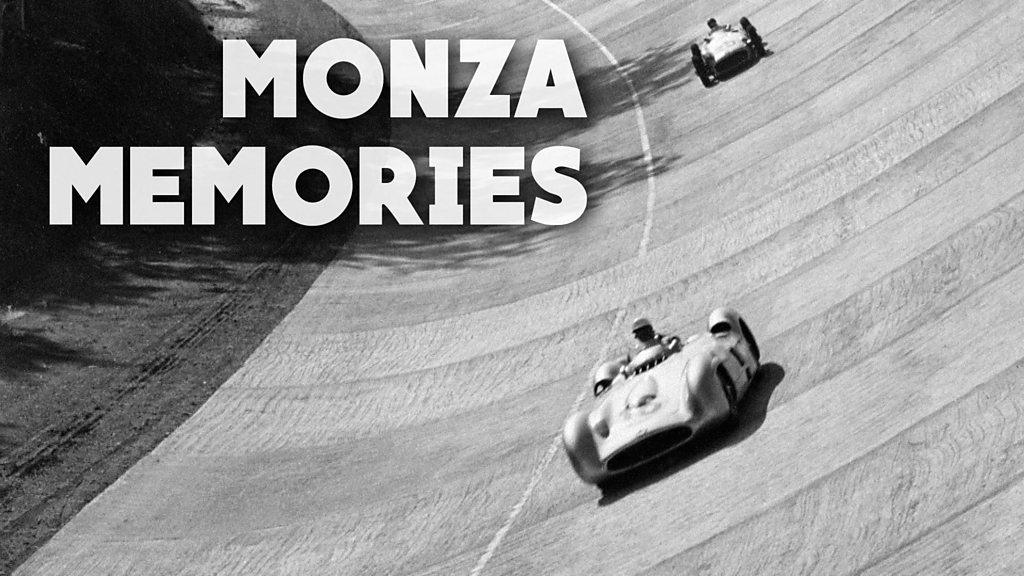
- Published3 September 2016
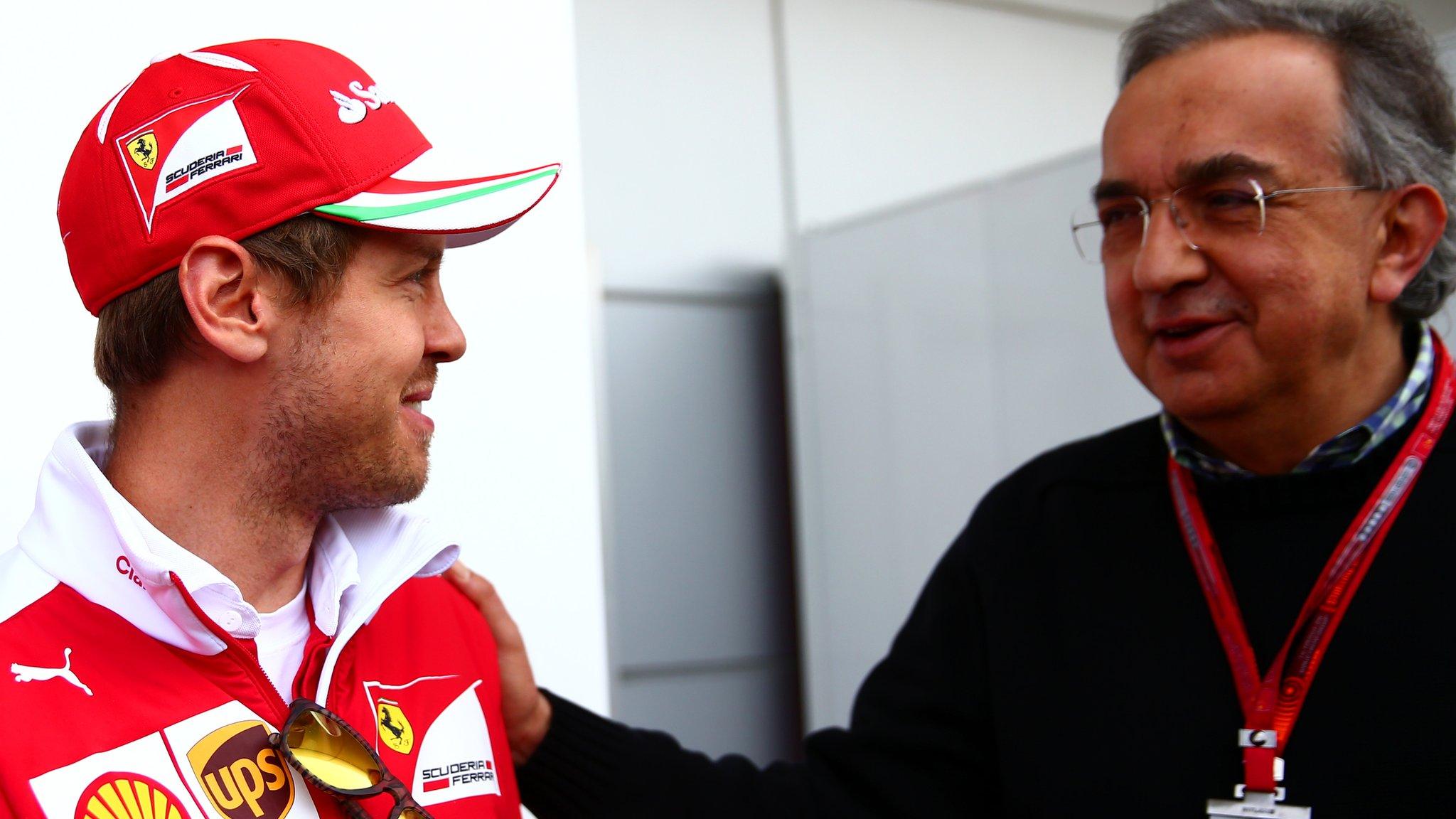
- Published3 September 2016
